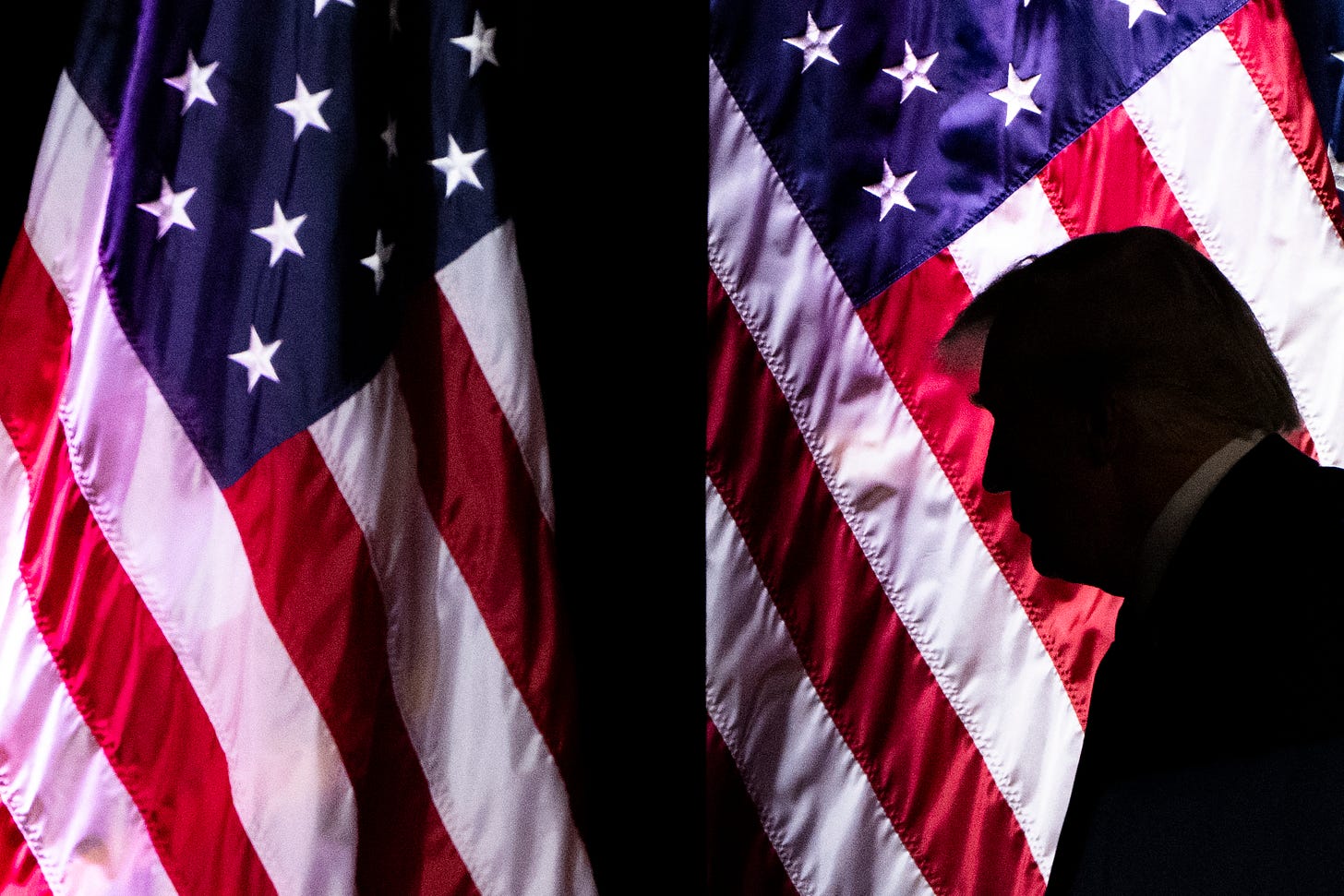Could a Re-Elected Trump Really Dismiss the Cases Against Him?
The answer is murkier than you might think.

LEGAL EXPERTS EVERYWHERE AGREE: If Donald Trump becomes president in 2025, he can simply order the federal criminal cases against him to be dismissed forever.
There is good reason to believe that legal experts everywhere are wrong about this.
Once a case is filed, the final decision on dismissal is made by the courts, not the prosecutor. For example, in California in 1981, the Los Angeles district attorney asked a judge to dismiss murder charges against Angelo Buono, the Hillside Strangler. A superior court judge said no, and appointed the attorney general’s office to prosecute Buono, who was convicted of murder and died in prison. The judge, Ron George, went on to become the chief justice of California.
A re-elected President Trump could order the Department of Justice to seek dismissal of the January 6th case currently pending against Trump in federal court. But that case is governed by federal law—which, like California law, gives the court discretion to reject such a request. Rule 48 of the Federal Rules of Criminal Procedure states: “The government may, with leave of court, dismiss an indictment, information, or complaint” (my emphasis).
Under relevant Supreme Court precedent, Rule 48’s “leave of court” requirement gives the judge some role in evaluating a request to dismiss a pending indictment. Notably, the drafters of the rule were worried about a public perception that prosecutors too often sought dismissal of cases against politically well-connected defendants. In an article about the history of Rule 48 in the Stanford Law Review, Professor Thomas Ward Frampton explains that
the “principal object” of Rule 48(a)’s “leave of court” requirement was not to protect the interests of individual defendants, but rather to guard against dubious dismissals of criminal cases that would benefit powerful and well-connected defendants. . . . Its purpose was to empower a district judge to halt a dismissal where the court suspects some impropriety has prompted prosecutors’ attempt to abandon a case.
The Supreme Court has said that “the salient issue” is “whether the Government’s later efforts to terminate the prosecution” are “tainted with impropriety.”
It is difficult to conceive of anything more “tainted with impropriety” than a criminal defendant ordering the dismissal of his own criminal case.
And it is hard to imagine a defendant more “well-connected” than one in charge of the Department of Justice, with the power to dismiss charges against himself. For these reasons, Trump’s request for dismissal would be closely scrutinized by Judge Tanya S. Chutkan, the judge presiding over the federal January 6th case.
Judge Chutkan would not be the first district court judge in Washington, D.C. to be faced with a questionable request for dismissal of a charge against a high-profile defendant.
The application of Rule 48’s leave of court requirement became a topic of national discussion in 2020, when President Trump’s Department of Justice sought to dismiss charges against Trump’s former national security advisor Michael Flynn. Flynn had pleaded guilty to charges of making false statements to federal agents. After Trump spoke directly with Flynn’s lawyer about the case, and publicly grumbled about Flynn’s treatment, Attorney General Bill Barr claimed to have developed doubts about the strength of the case. Barr ordered the Department of Justice to ask U.S. District Judge Emmet Sullivan to dismiss the charges.
But Judge Sullivan had doubts about the propriety of the government’s request, and appointed a retired judge as an amicus to argue against dismissal. After Flynn unsuccessfully sought to have the appellate courts order Judge Sullivan to dismiss the case, President Trump pardoned Flynn.
Judge Sullivan ultimately dismissed the charges against Flynn, based on Trump’s pardon. But Judge Sullivan wrote a decision strongly suggesting that, absent the pardon, he might have denied the Government’s Rule 48 motion to dismiss, as it appeared to be “tainted with impropriety.”
The reasoning of Judge Sullivan’s decision in the Flynn case could serve as a roadmap for Judge Chutkan to follow if Trump were to order his case dismissed.
Critics might argue that the January 6th case is in a meaningfully different procedural posture than the Flynn case. Flynn had already pleaded guilty (twice). Had Trump not pardoned Flynn, the court’s only remaining role was to sentence Flynn, which is a traditionally judicial function. By contrast, there has been no determination of guilt in the January 6th case. Federal courts of appeal are skeptical of a federal district court telling the government to move forward with an open prosecution. Ron George’s stunt in the Hillside Strangler case probably would not have worked in federal court.
But the critics’ argument lacks merit. Judge Chutkan need not, and indeed cannot, tell the Department of Justice to pursue this prosecution during Trump’s presidency. It is the longstanding view of the Department of Justice and the Office of Legal Counsel that DOJ may not prosecute a sitting president. If Judge Chutkan denied the government’s motion to dismiss, DOJ would not immediately resume the prosecution. Rather, Judge Chutkan would order proceedings in the case to be stayed until Trump is no longer president. At that time, the Department of Justice could decide whether to resume the prosecution.
In short, the January 6th case will not move forward while Trump is president, whether it is dismissed or not. The choice is not between dismissing the case or forcing the prosecution to immediately proceed. The choice is whether the decision to proceed will be made by a Department of Justice headed by the defendant or by a future Department of Justice with no such obvious conflict of interest. Put that way, a ruling denying dismissal does not seem far-fetched at all.
ADMITTEDLY, PUTTING THE CASE on hold in this way would satisfy few people. Justice for Trump’s actions in trying to steal a presidential election would be delayed at least four more years. A future Department of Justice could decide it is not worth it to continue the prosecution once Trump is out of office. And Trump could always try to pardon himself. The legality of that stratagem would be a matter of intense legal and political debate; it is by no means certain that courts would invalidate a self-pardon.
Indeed, it is far from clear that even a ruling putting the case on hold for four years would survive appeal. The D.C. Circuit has many skeptics of a significant judicial role in Rule 48 dismissals. And we learned last term, if we didn’t already know it, that a majority of justices on the Supreme Court are more than a bit protective of executive power.
In the end, the Supreme Court may well bail out Trump once again. But the road to that conclusion may be far bumpier than most critics have anticipated. Contrary to what most legal experts tell you, Trump likely cannot order the cases against him dismissed without a fight that could take years to resolve.
Patrick Frey is a deputy district attorney for Los Angeles County and the proprietor of patterico.com. This article reflects his own views and not those of his office.





